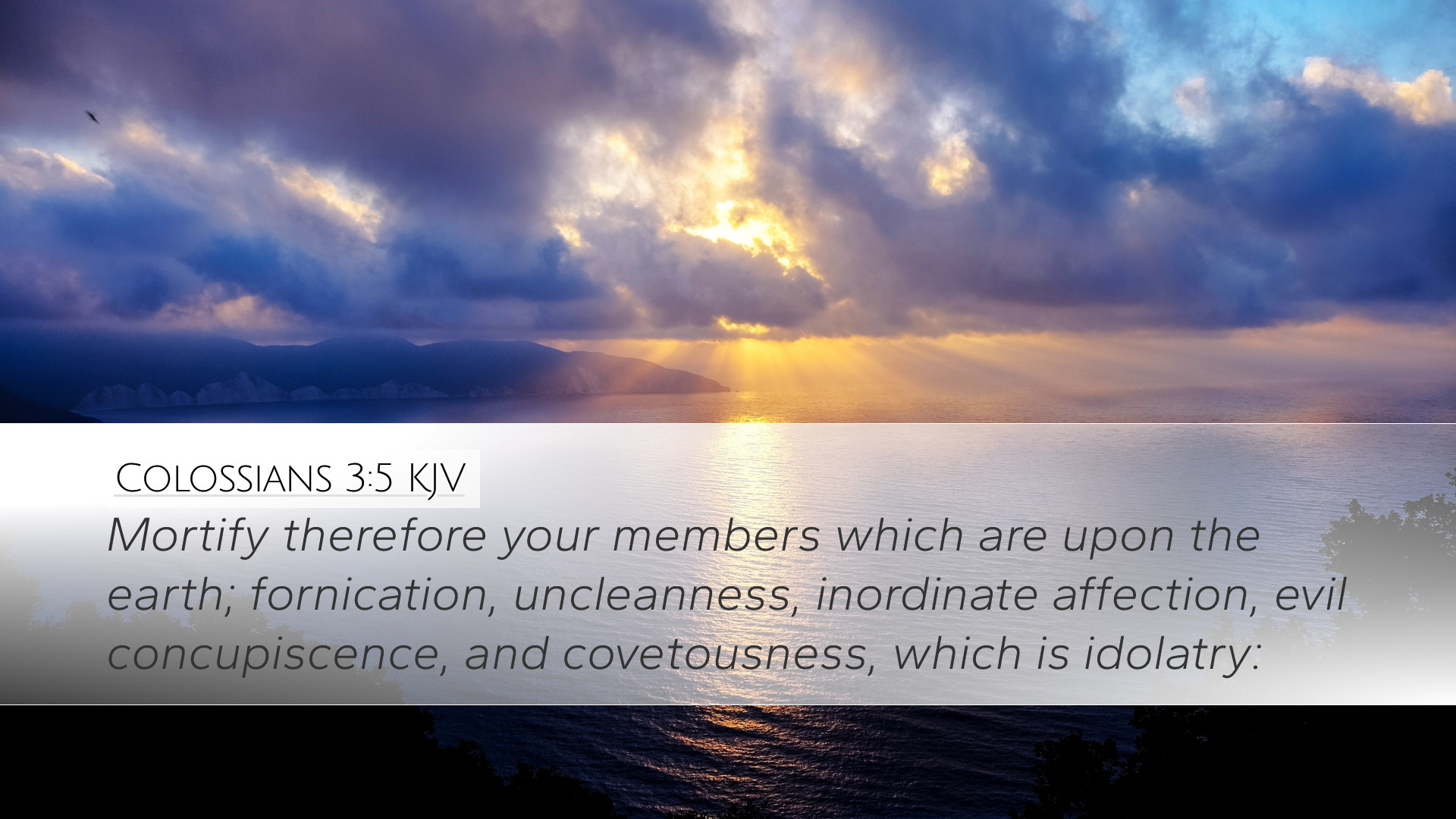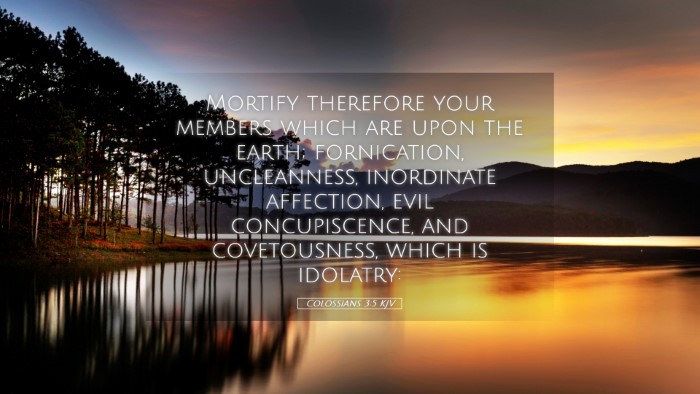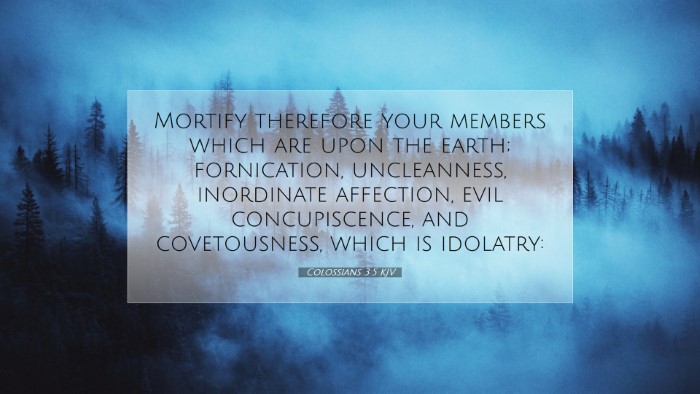Commentary on Colossians 3:5
Colossians 3:5 states, "Put to death therefore what is earthly in you: sexual immorality, impurity, passion, evil desire, and covetousness, which is idolatry." This verse serves as a crucial exhortation to believers, emphasizing the need for spiritual vigilance and moral integrity.
Understanding the Prohibition
According to the Apostle Paul, there exists a fundamental conflict between the believer's new identity in Christ and their former life characterized by sin. Paul opens this section with an imperative: the active necessity to “put to death” the earthly nature that once defined their existence. The term ‘put to death’ conveys a strong sense of urgency and decisiveness.
Insights from Albert Barnes
Albert Barnes emphasizes that this phrase is suggestive of a complete rejection of those aspects of the human experience that are contrary to the Spirit. He states that it is not merely a suggestion but a command requiring urgent and definite action. The focus on sexual immorality, impurity, and related vices illustrates the nature of sin as destructive to both the individual and the community.
Matthew Henry's Perspective
Matthew Henry highlights that these sins can easily creep into a believer's life if not vigilantly guarded against. He explains that covetousness, which he connects to idolatry, serves as the root of many forms of sin. Henry points out that in the context of idolatry, coveting essentially usurps God’s rightful place in our hearts and directs our affection towards worldly possessions rather than spiritual fulfillment.
Adam Clarke's Contribution
Adam Clarke contextualizes this verse within the broader theme of spiritual warfare. He argues that the Christian life is inherently characterized by a struggle against the sinful inclinations of the flesh. Clarke notes that the practices mentioned are prevalent issues that resonate not only in the Colossian context but also in today’s society. He underscores the necessity for believers to actively confront and renounce these sins.
Theological Implications
The call to “put to death” one’s earthly nature is tied intricately to the fundamental Christian belief in regeneration and transformation. This transformative process implies that the believer is to live in a manner reflective of their identified relationship with Christ. In this regard:
- Transformation: The believer’s change in nature requires a corresponding change in behavior.
- Identification with Christ: The act of putting to death sinful practices reflects a deeper identification with the death and resurrection of Christ.
- Community:** As Paul addresses the Colossian church, there is an implied responsibility towards the community, encouraging believers to uphold one another in this moral vigilance.
Purification of the Heart
The emphasis on purification echoes the Old Testament teachings regarding holiness. Believers are called not only to remove sinful actions but also to engage in a heartfelt purification process. This is not merely an outward observance but an inner transformation that affects the whole of one’s being.
Practical Applications for Believers
For those who seek to adhere to this instruction in Colossians 3:5, the following applications emerge:
- Discernment: Cultivation of a discerning heart that recognizes the influences of the world and the flesh.
- Accountability: Engaging in community life that provides accountability and encouragement in moral choices.
- Prayer and Study: Dedicating time for prayer and the study of Scripture to deepen understanding and resist temptation.
The Role of God's Power
It is crucial to recognize that the directive to “put to death” is not accomplished through sheer human willpower. Paul reminds the Colossians of their position in Christ, implying reliance on God’s power and grace to effect change. This dependence enhances the believer’s ability to confront sin effectively.
Conclusion
Colossians 3:5 stands as a timeless exhortation that resonates deeply with Christians throughout the ages. In a culture rife with moral ambiguity, the call to put to death earthly desires is not only relevant but vital. Whether one approaches this text as a pastor, a student, a theologian, or a general believer, its implications challenge us to foster a life that glorifies Christ and stands in stark contrast to the world around us.


